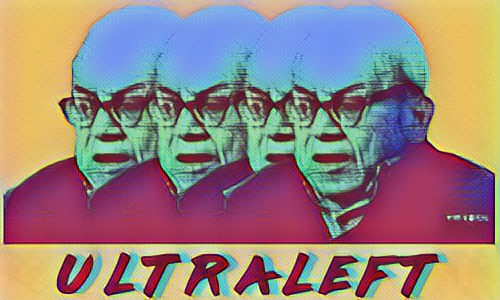Technocratic Minarchy, Ecological Councilism
Technocratic minarchists, who would wish to achieved a logical progressive minarchist state would administer it so. One definition of technocracy is “the rule of the people made effective through the agency of their servants, the scientists and engineers" is the best way to define what, at its core, is the main idea of technocratic government. In this sense you would have a minarchy administered by scientific experts, this can be achieved with no departure from the theory of the minimal state.
What may be needed is a not a duty but a right to participate in science. Minarchy is designed to protect citizens rights. What if a social contract included the right to participate in science? This is the basis for a technocratic minarcho-state.
Gone are the days when John Rawls could persuasively ground an elaborate defense of the welfare state on the intuition that anyone uncertain about their place in society would prefer to live in one that promises to protect its members from the worst outcomes. In marked contrast, a proactionary world would not merely tolerate risk taking but outright encourages it, as people are provided with legal incentives to speculate with their bio-economic assets. Living riskily would amount to an entrepreneurship of the self.
The proactionary camp would have the state encourage people to transcend current norms rather than adhere to them. A minarcho-state operates as a venture capitalist firm writ large in research and development for science and technology. This is in keeping with the proactionary principle and other rights that may need to be protected in accord with a social contract with an evolutionary vision for humanity.
For Minarcho-Technocracy we have an otherwise minimal state with the added protection of the right to participate in science. Such a right to participate in science might include what democratic and progressive transhumanists support as equal access to human enhancement technologies in order to promote broad technological freedom. Such a minimal state would have a role in advancing development of technology and science itself.
While it is important that technocracy be minarchist, it is also crucial that councilism be ecological. Councilists believe that the role of a revolutionary organization is not to perform the revolution for the working class, but only to agitate within the class, encouraging people to take control of their own struggles through the directly democratic institutions of workers’ councils. Furthermore, councilists think that the working class must develop to possess a strong political consciousness and have the abolition of capitalism set as their goal; the councils are only the means by which this goal can be realised. As such, the consciousness should not be only class based but ecological.
An ecological class consciousness should result in the following propositions. First of which is decentralization. An eco-councilist society would take the form of a confederation of decentralized municipalities linked to each other by commercial and social ties. Dispersed renewable energy sources would feed these communities on a human scale and provide for each according to their needs.
Second is direct democracy structured around the principle of democratically-run worker controlled firms and workers’ councils. This extends to the advocation for the development of municipal assemblies for direct democratic decision-making. The decisions concerning the life of the community are discussed and voted by majority in these assemblies. Similarly, at the higher level, recallable delegates are appointed to represent their municipality at regional, national, and other meta-assemblies. It is a horizontal system, a non-hierarchical popular democracy whose decisions go from the bottom up.
Thirdly what is needed is renewal of citizenship. At the base of Eco-Councilism is the citizen and the community. Each person must relearn to participate in the choices concerning local life, and to do this she must relearn to decide in common. The citizen must become responsible again and know the minimum allowing him to take an active part in the management of the community, in particular, what has a direct repercussion on his life and that of others. This citizenship will not be imagined in the traditional sense but on the basis of the larger ecological-self. We are asked to identify with other creatures, to expand our own “selves” to include the whole of nature. Through this widening of the self, the protection of nature becomes a kind of enlightened self interest.
In the end, what is presented is minimalism pursued in statecraft. A minimal state will be needed for the basic protection of individual rights. However, this state will be administered by scientific experts and also protect a significant right to participate in science, thus a Minarcho-Technocracy. Meanwhile, in the realm of civil society, Eco-Councilism will flourish with the organization of worker-controlled cooperative firms and direct democratic municipal assemblies operating in view of an ecological citizenship. The proliferation of workers’ councils will build ecological consciouness and an end to capitalism as we know it. The merger of these ideologies represent our future.




Comments
Post a Comment